
The New Patriotic Party (NPP) is a centre-right and liberal-conservative political party in Ghana. Since the democratisation of Ghana in 1992, it has been one of the two dominant parties in Ghanaian politics, with its leading rival being the centre-left National Democratic Congress (NDC). John Kufuor of the NPP was President of Ghana from 2001 to 2009. At the elections held on 7 December 2004, the party won 129 out of 230 seats. The NPP candidate was Kufuor, who was re-elected as president with 52.75% of the vote. The New Patriotic Party symbol is the African elephant and the New Patriotic Party colours are red, white, and blue.

John Dramani Mahama is a Ghanaian politician who served as President of Ghana from 24 July 2012 to 7 January 2017. He previously served as Vice President of Ghana from January 2009 to July 2012, and took office as president on 24 July 2012 following the death of his predecessor John Evans Fiifi Attah Mills. Mahama is a communication expert, historian, and writer. He is a member of the National Democratic Congress (NDC), who was a Member of Parliament for Bole Bamboi from 1997 to 2009 and served as Deputy Minister for Communication between 1997 and 1998 before becoming the substantive Minister for Communications from 1998 to 2001.

Nana Addo Dankwa Akufo-Addo is a Ghanaian politician who has served as the president of Ghana since 7 January 2017. In 2020, he was re-elected for his second term, which will end on 6 January 2025. Akufo-Addo previously served as Attorney General from 2001 to 2003 and as Minister for Foreign Affairs from 2003 to 2007 under the Kufuor-led administration. He was elected as the Economic Community of West African States (ECOWAS) chairman on 7 September 2020 at the 57th ECOWAS Summit, held in Niamey, capital of Niger to replace Nigerien President, Mahamadou Issoufou. He was re-elected for a second term as the Economic Community of West African States (ECOWAS) Chairman on 2 February 2021. He ended his term by delivering his last address as Chairman of the regional body at the 61st Ordinary Session of the Authority of ECOWAS Heads of State and Government in Accra, Ghana on 3 July 2022. The Authority of Heads of State, in a closed-door session after the opening ceremony of the summit, elected the President of Guinea-Bissau, Umaro Mokhtar Sissoco Embaló, as ECOWAS Chairman to succeed President Akufo-Addo. Akufo-Addo is also the current Commander-in-Chief (C-in-C) of the Ghana Armed Forces (GAF)

General elections were held in Ghana on 7 December 2008. Since no candidate received more than 50% of the votes, a run-off election was held on 28 December 2008 between the two candidates who received the most votes, Nana Akufo-Addo of the governing New Patriotic Party and John Atta Mills of the opposition National Democratic Congress. Mills was certified as the victor by a margin of less than one percent, winning the presidency on his third attempt. It is to date the closest election in Ghanaian history.
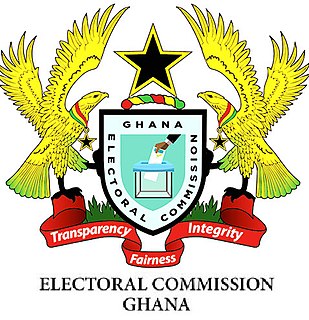
The Electoral Commission of Ghana(EC) is the official body in Ghana responsible for all public elections. Made up of seven members, its independence is guaranteed by the 1992 Ghana constitution. The current commission was established by the Electoral Commission Act of 1993. Kwadwo Afari-Gyan was the first substantive chairman of the commission from 1993 to 2015. He was succeeded by Charlotte Osei as the first female chairman of the commission. On 5 December 2018, the Electoral commission chaired by Jean Adukwei Mensah reverted to the old logo showing Coat of arms of Ghana and a ballot box showing the hand casting its votes, after the controversy over the new logo

General elections were held in Ghana on Friday 7 December 2012 to elect a president and members of Parliament in 275 electoral constituencies. Owing to the breakdown of some biometric verification machines, some voters could not vote, and voting was extended to Saturday 8 December 2012. A run-off was scheduled for 28 December 2012 if no presidential candidate received an absolute majority of 50% plus one vote. Competing for presidency were incumbent president John Dramani Mahama of the National Democratic Congress (NDC), his main challenger Nana Akufo-Addo of the New Patriotic Party (NPP) and six other candidates.

General elections were held in Ghana on 7 December 2016 to elect a President and Members of Parliament. They had originally been scheduled for 7 November 2016, but the date was later rejected by Parliament. Former foreign minister Nana Akufo-Addo of the opposition New Patriotic Party was elected President on his third attempt, defeating incumbent President John Mahama of the National Democratic Congress.

Charlotte Kesson-Smith Osei is the UN International Elections Commissioner, a Ghanaian lawyer and former chairperson of the Electoral Commission of Ghana from 2015 until she was dismissed in June 2018 on grounds of financial malfeasance. Her dismissal has been challenged in the Supreme Court of Ghana by two separate writs. She became the first female to serve in the office of the Electoral Commission of Ghana since the independence of Ghana. Before her appointment she was the chairperson of the National Commission for Civic Education. In May 2019, she was appointed by the United Nations to be on a team of international advisors, to assist in managing the 2019 presidential elections in Afghanistan.

Daniel Kwaku Botwe is a Ghanaian politician. He is the Member of Parliament of Okere constituency in the Eastern Region of Ghana. He served as Minister for Information and National Orientation in the John Agyekum Kufour administration, He served as the Minister for Regional Reorganization and Development and also the Minister for Local Government, Decentralisation and Rural Development in the Nana Akufo-Addo first and second term of office respectively.
Joseph Anokye is a Ghanaian geodetic engineer and technology manager. He has worked with various organizations, including the National Aeronautics and Space Administration in the United States as a telecommunications service manager. He is a member of the New Patriotic Party and the current head of the National Communications Authority of Ghana.
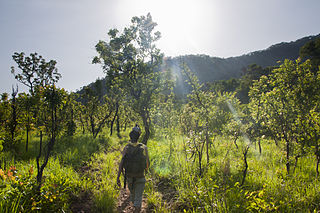
The Oti Region is one of the six newly created regions of Ghana in December 2018. The region was carved out of the northern part of the Volta Region and will be in fulfillment of a campaign promise made by New Patriotic Party. Prior to the 2016 Ghanaian general election, the then candidate Nana Akufo-Addo declared that when elected, he would explore the possibility of creating new regions out of some of the existing regions in Ghana in order to bring government closer to citizens.

The Ahafo Region is a newly created region in Ghana with Goaso as its capital. The region has administrative and governmental legislature like all the ten already existing regions in Ghana. The region was carved out of the south-eastern part of the Brong Ahafo Region and was in fulfillment of a campaign promise made by New Patriotic Party. Prior to the 2016 Ghanaian general election, the then candidate Nana Akufo-Addo declared that when elected, he would explore the possibility of creating new regions out of some of the existing regions in Ghana in order to bring government closer to citizens.
The Ghana Freedom Party is a party founded by Akua Donkor, a farmer. This was largely to help her ambitions to become President of Ghana.
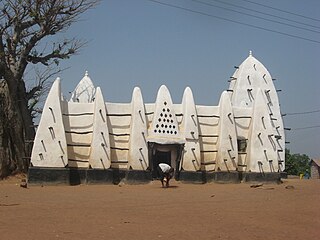
The Savannah Region is one of the newest regions of Ghana and yet the largest region in the country. The creation of the Region follows presentation of a petition by the Gonja Traditional Council, led by the Yagbonwura Tumtumba Boresa Jakpa I. Upon receiving favourable responses from all stakeholders in the Northern Region, the Brobbey Commission, a referendum was conducted on the 27th December 2018. The result was a resounding yes of 99.7%. The President of the Republic of Ghana signed and presented the Constitutional Instrument (CI) 115 to the Yagbonwura in the Jubilee House, Accra on 12 February 2019. The launch was well attended by sons and daughters of Gonjaland including all current and past Mps, MDCEs and all appointees with Gonjaland descent. Damongo was declared the capital of the new Savannah Region. It is located in the north of the country. The Savannah Region is divided into 7 districts; Bole, Central Gonja, North Gonja, East Gonja, Sawla/Tuna/Kalba, West Gonja, North East Gonja and 7 Constituencies; Bole/Bamboi, Damongo, Daboya/Mankarigu, Salaga North, Salaga South, Sawla/Tuna/Kalba and Yapei/Kusawgu. The capital of Bole district is Bole; East Gonja municipal is Salaga; West Gonja district is Damango; Sawla Tuna Kalba district is Salwa; Central Gonja is Buipe; North Gonja is Daboya; and North East Gonja is Kpalbe
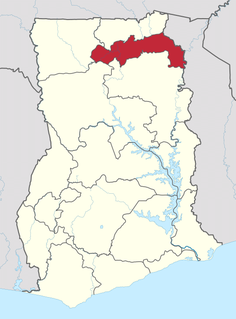
The North East Region is one of the sixteen regions of Ghana. It is located in the north of the country and was created in December 2018 after a referendum was voted upon to break it off of the Northern region. The region's capital is Nalerigu.
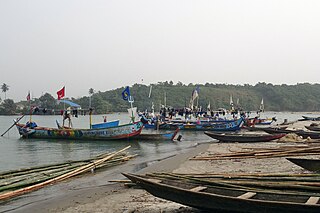
The Western North Region is one of the six new regions of Ghana created in 2019. The region is bounded by the Ivory Coast on the west, the Central region in the southeast, and the Ashanti, Ahafo, Bono East and Bono regions in the north. The Western North Region has the highest rainfall in Ghana, lush green hills, and fertile soils. There are numerous small and large-scale gold mines companies in the region. The ethnic culture of the region is dominated by the Sefwis. The main languages spoken are Sefwi, Akan, French and English.

General elections were held in Ghana on 7 December 2020. Incumbent President Nana Akufo-Addo of the New Patriotic Party (NPP) was re-elected in the first round after securing a majority of the votes. Former President John Dramani Mahama says he will contest the results.

The Bono East region of Ghana is a new region carved out of the Brong Ahafo region. The capital of the new region is Techiman. This creation of this new region was in fulfillment of a promise made by the New Patriotic Party prior to the 2016 Ghana general election. Upon winning the elections, the President, Nana Akuffo Addo created the Ministry of Regional Reorganization to oversee policy formulation and implementation. In all six new regions are to be created from the existing ten regions of Ghana. The other regions are Bono, Western North, Ahafo, Savannah, North East, and Oti regions.
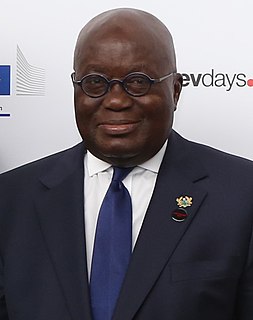
The presidency of Nana Akufo-Addo began on 7 January 2017. Following the 2016 Ghanaian general elections, Nana Akufo-Addo the flag-bearer of the New Patriotic Party, succeeded John Mahama as the 12th President of Ghana after winning by a landslide. He won a second term on 9 December 2020 in a tightly contested race against National Democratic Congress (NDC) candidate and former president, John Mahama.

















